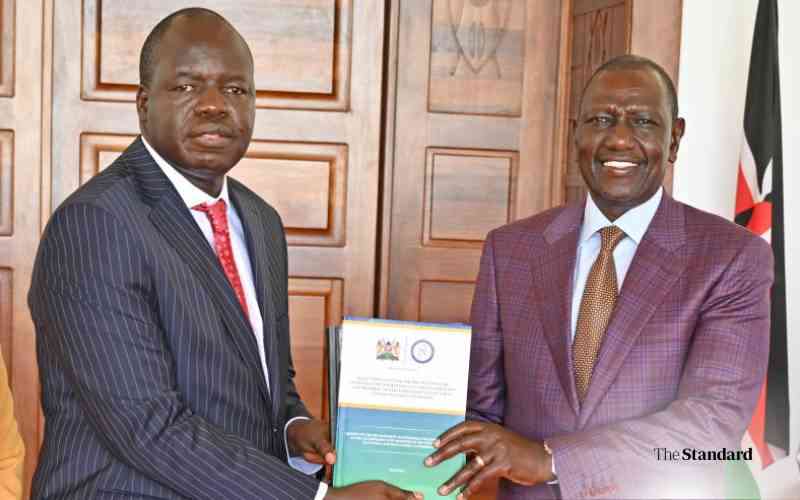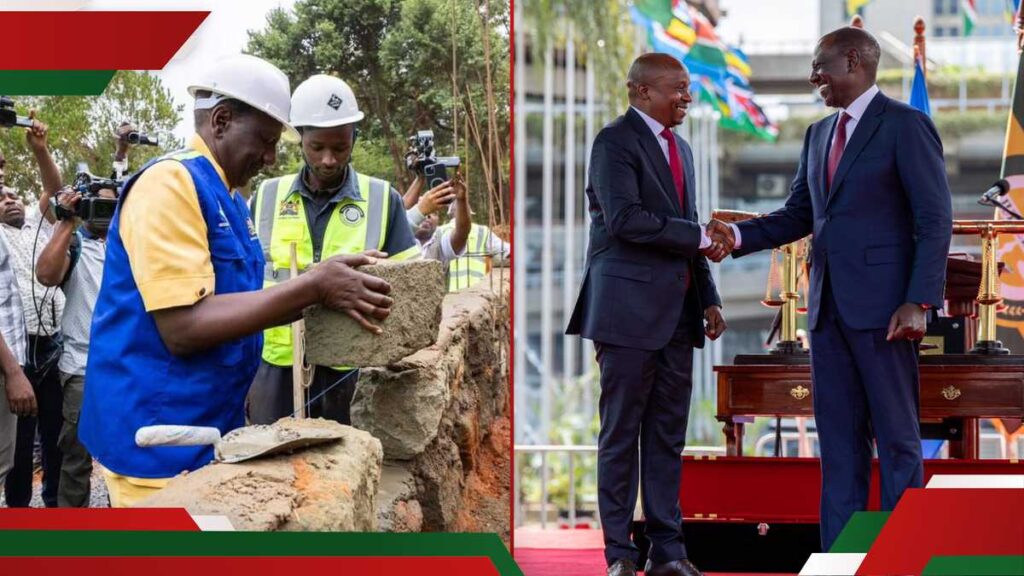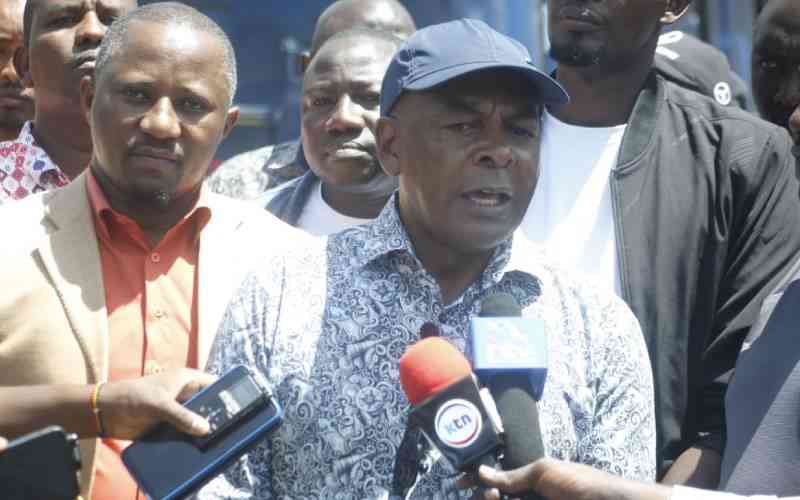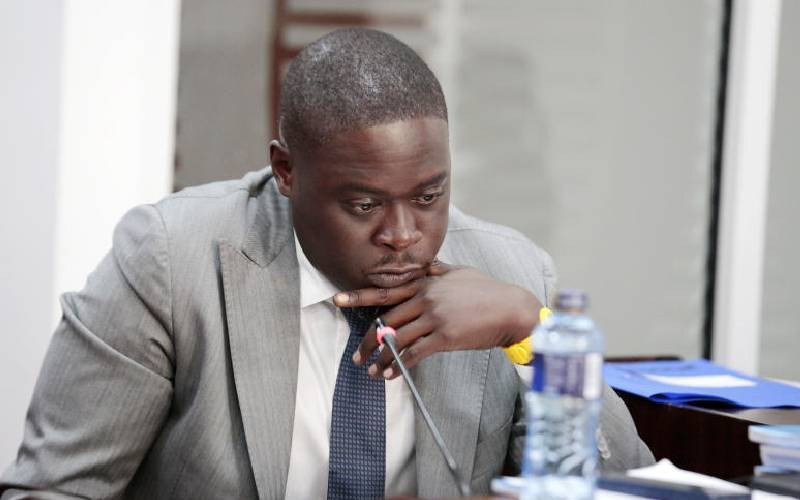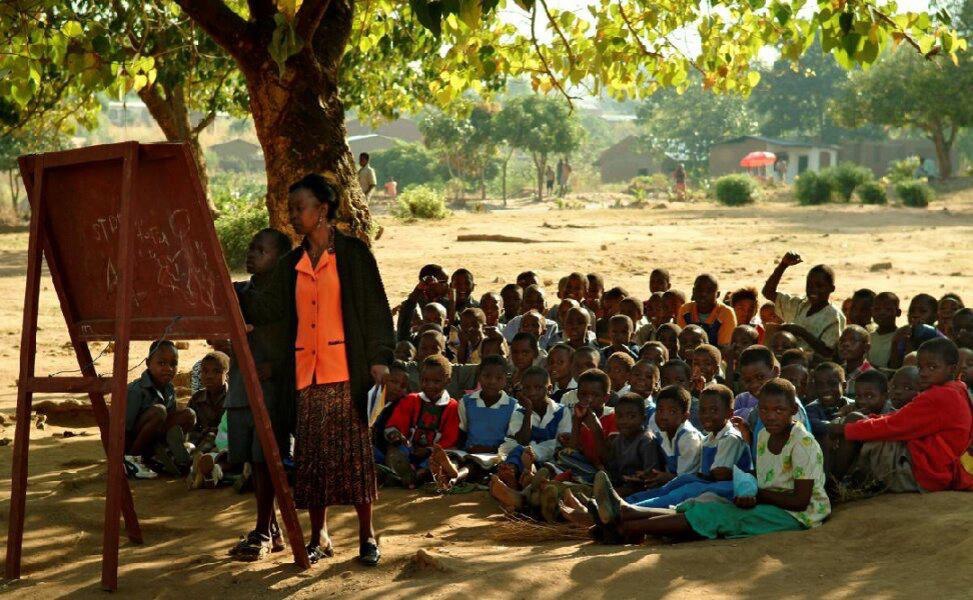The National Assembly now wants the High Court to lift the interim orders that froze the approval process of President William Ruto’s seven nominees to the Independent Electoral and Boundaries Commission (IEBC).
In an application filed in court under a certificate of urgency filed in court, the MPs argued that halting the process undermines public involvement and disrupts a constitutionally timed exercise.
The National Assembly argues that, in the interest of procedural fairness, the public interest overwhelmingly favours the continuation of the approval process.
The Assembly asserts that the court should allow the vetting process to reach its logical conclusion before intervening.
Through the Deputy Clerk of the National Assembly, Mr Jeremiah Ndombi, the National Assembly says the interim orders were not supposed to be issued since the petitioners, Kelvin Roy Omondi and Boniface Mwangi, had not demonstrated that they have a strong case against the nominees.
Ndombi adds that the interim order issued by Justice Lawrence Mugambi was both premature and unjustified.
“The issues raised by the Petitioners primarily concern a process that is actively ongoing within the constitutional and statutory framework of the National Assembly, and which process is subject to strict statutory timelines that must be complied with,” said Mr Ndombi in an affidavit.
According to the Public Appointments (Parliamentary Approval) Act, the vetting process is strictly time-bound, giving the Justice and Legal Affairs (JLAC) just 28 days to evaluate and report on the nominees before a final decision is made by the House.
Ndimbi says that the deadline for the report is May 27, 2025, two days before the court is expected to issue a substantive decision.
“The issues raised by the Petitioners primarily concern a process that is actively ongoing within the constitutional and statutory framework of the National Assembly, and which process is subject to strict statutory timelines that must be complied with,” says Mr Ndombi.
Mr Ndombi warned that continuing the freeze risks disenfranchising members of the public who had actively engaged in the process by submitting written memoranda.
“Granting conservatory orders to halt the ongoing approval process will affect the constitutional rights of public participation and fair hearing for the various members of the public, who have sent memoranda to the Committee on Justice and Legal Affairs challenging the selection of the nominees to the IEBC. This is not in the public interest,” he argued.
In addition to public participation concerns, Parliament says the petitioners failed to meet the legal threshold for injunctive relief.
Stay informed. Subscribe to our newsletter
“The petitioners have neither demonstrated that they have a strong case with a likelihood of success, nor shown that they will suffer irreparable harm that could not be remedied if the approval process is allowed to proceed,” stated Mr Ndombi.
The order was issued on Monday this week, suspending the planned vetting until May 29, 2025, when the court is scheduled to issue a substantive ruling on the matter.
This followed an application by the petitioners, who alleged that it was unlawful for President Ruto to nominate the seven persons to serve as chairperson and members of the IEBC
They also alleged that four of the seven nominees -Erastus Edung Ethekon (proposed chairperson), together with Hassan Noor Hassan, Mary Karen Sorobit, and Anne Nderitu -were ineligible for the office and that the President acted unconstitutionally.
The other three nominees are Moses Mukwana, Francis Odhiambo, and Fahima Araphat Abdallah, are also under scrutiny as the petitioners warn that the integrity and independence of the IEBC are at stake.
The Deputy Clerk, however, emphasized that the committee is well-equipped to assess all procedural complaints, including those raised by the petitioners.
“One of the issues that the Committee on Justice and Legal Affairs will consider during the approval process is whether the correct procedure was used to arrive at the nominees’ names,” he said.
He further pleads that the issues raised by the petitioners could have been raised and considered by the vetting committee, which is mandated to undertake a merit review of the entire selection process against the criteria set out under the applicable laws.








